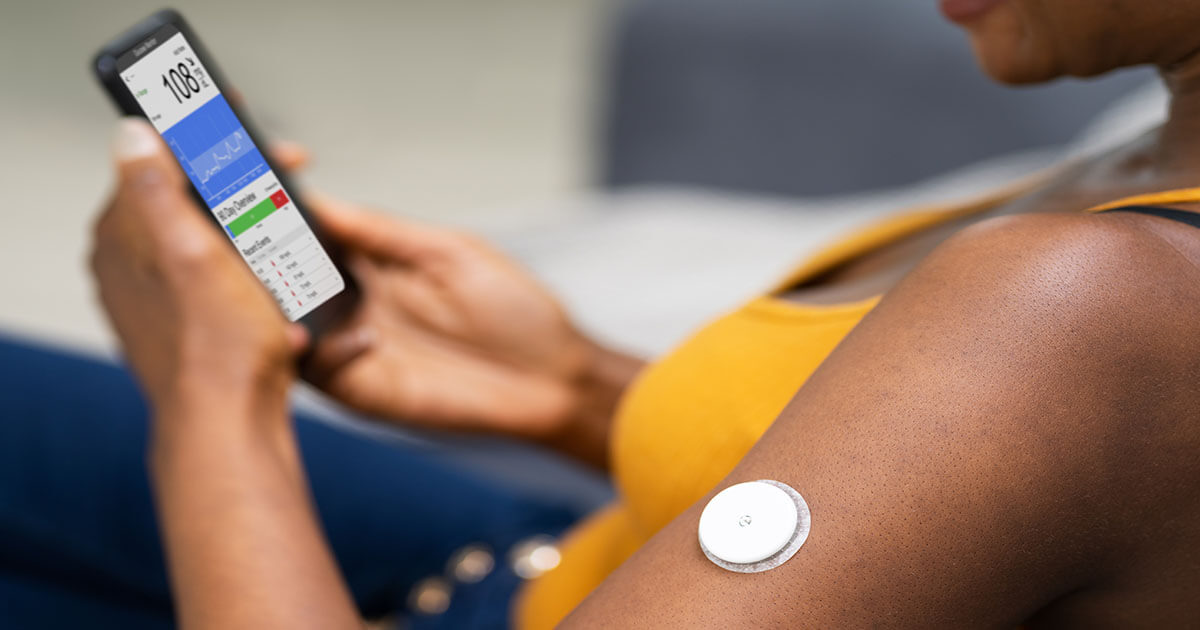Category of Best Network Care Initiative
This category recognises the significant gains in quality of care and productivity that can be achieved through the integration and coordination of diabetes care via networks, whether across the whole diabetes care pathway, or through highly specialist networks. The winning entry was a project that had success at a national level and built strategic links across 165 paediatric diabetes units in England.
Winner: A national networked approach to improving care and outcomes in children and young people with diabetes in England
Submitted on behalf of the National Children and Young Peoples Diabetes Network and Leeds Teaching Hospitals NHS Trust by Dr Fiona Campbell, Consultant Paediatric Diabetologist
In an attempt to address the lack of a standardised approach to healthcare for children and young people (CYP) with type 1 diabetes, ten regional CYP diabetes networks were set up with support from NHS Diabetes. Together, these networks form the National CYP Diabetes Network to share good practice and maintain high quality standards. Working in conjunction with the Department of Health, the National CYP Diabetes Network has recognised the need to develop a 5-year National Paediatric Diabetes Service Improvement Delivery Plan to help improve outcomes and the quality and safety of care. Achievements so far include embedding the appointment of a Paediatric Network Coordinator in each network, assisting the development of the 13 Care Standards set out in the Best Practice Tariff, establishing a National Curriculum for the training of Health Care Professionals who care for Children and Young People with Diabetes Mellitus and to develop the National Peer Review Quality Assurance Programme. A patient/carer reference group has also been set up under the name Families with Diabetes National Network.
The judges were particularly impressed and commented, “Supporting children with diabetes is a very important topic with significant implications, and the process of getting everyone who was involved in this project together has to be commended. Well-structured and tangible positive outcomes [have been] demonstrated and [this is] a remarkable achievement in a 3-year period.”
Finalist: Developing a transition toolkit – the process and the outputs
Submitted by the North West Paediatric Diabetes Network
The process for transition from paediatric care to adult care in diabetes varies across the country and many young people are lost to follow up. The North West Paediatric Diabetes Network (NWPD) team shared information from various trusts in the area to create a template for a transition toolkit that could be adapted by different teams irrespective of their own transition arrangements.
The documents were piloted by two units with different transition processes to ensure they were applicable to practice and the information was transferable. Pilot sites reported that they found the suite of tools easy to use and helpful in describing their local process for transition. The toolkit has been shared with all units and trusts regionally via the monthly NWPD network newsletter. It has also been shared nationally via the network co-ordinators.
Category of Best Improvement Programme for Children and Young People
In this category, the judges were looking for initiatives with a high level of engagement from key stakeholders, in particular, children and their families, as well as evidence of sustainability and transferability to other organisations. There were four nominations in this category: two joint winners and two highly commended.
Winner: Working Together in Partnership: The further development of a children and young people’s diabetes service by enhancing training and education for both staff, patients and their families.
Submitted on behalf of Leeds Teaching Hospitals NHS Trust by Dr Fiona Campbell
The key to success in paediatric diabetes care is that children and their families receive consistent messages from clinical staff at all points of the patient’s diabetes journey. The Paediatric Diabetes team in Leeds worked in partnership with patients and parents, and the Senior Lecturers responsible for the delivery of the Paediatric Diabetes Education at the University of York. Several initiatives were developed: a comprehensive training package for healthcare professionals to be delivered annually; a website designed by young people and parents; and a workbook for families at the time of a child’s diagnosis, which in turn is linked to the website with further useful information about living with diabetes. There is also a series of structured tutorials based on an educational diabetes curriculum, and further education in the form of pump training with a pump workbook, conversation map and review courses. Data demonstrates that children and young people with diabetes and their families are satisfied with the self-management education and there have been improved outcomes related to HbA1c results.
Judges commented that the Children and Young Peoples Diabetes Service in Leeds was a wonderful concept with results that they would want to see in every centre in the country. They were also particularly impressed with the three-way partnership between the Paediatric Diabetes team, University, and the website designed by families for families.
Winner: Improving outcomes for adolescents with type 1 diabetes: The KICk-OFF (Kids In Control OF Food) structured education course
Submitted on behalf of Sheffield Children’s NHS Foundation Trust by Dr Kath Price, Consultant Paediatric Diabetologist, and Julie Knowles, Paediatric Diabetes Specialist Nurse
KICk-OFF (Kids In Control OF Food) is a 5-day structured education course, developed with school teachers and university educationalists, for young people with type 1 diabetes aged 11 to 16 years. Four hundred and eighty young people from 31 centres across the UK were recruited to participate in the cluster randomised controlled trial, comparing KICk-OFF with “usual” care and education. The programme offers age-appropriate activities and teaches self-management skills focused on carbohydrate counting and insulin dose adjustment to encourage participants to be able to manage their diabetes more effectively in everyday life. The curriculum was designed with input from school teachers to meet a variety of learning styles. Healthcare professionals delivering KICk-OFF were appropriately trained through a specifically designed teaching skills course, exploring learning theories, teaching groups, managing behaviour and assessing learning.
When compared to “usual” care, children involved in KICk-OFF have demonstrated improved quality of life measures and the subgroup with poor glycaemic control at the outset had significantly improved glycaemic outcomes at 2 years. KICk-OFF has shown to be an effective structured diabetes curriculum, which meets the learning needs and styles of children and young people aged 11 to 16 years.
The judges felt that the course was particularly unique for its significant consultation with young people and their parents.
For more information, see www.shu.ac.uk/ad/teach/course-contacts.html.
Highly commended: Young Diabetes Connections – supporting families to live well
Submitted on behalf of a partnership between Evelina Children’s Hospital at Guy’s and St Thomas’s NHS Foundation Trust, King’s College Hospital NHS Foundation Trust, and Lewisham Healthcare NHS Trust facilitated by the Diabetes Modernisation Initiative by Dr Martha Ford-Adams, Consultant Paediatrician, and Adele Swart, and Linda Bryant from the Diabetes Modernisation Initiative.
The Diabetes Modernisation Initiative (DMI) is a 3-year programme to help people live well with diabetes in the London boroughs of Lambeth and Southwark. Since 2010, it has worked alongside local health providers to develop new ways of detecting and managing diabetes in the boroughs. With increasing numbers of children and young people being diagnosed with diabetes, paediatric care was an early area of focus.
Diabetes paediatric services in the area were dispersed across providers. So the DMI introduced a new model of service provision. Young Diabetes Connections (YDC) brings together three local hospitals through a network of interconnected services to form a network of excellence for paediatric diabetes. Turning the local diabetes services into a larger service with greater capacity and expertise has allowed the YDC initiative to provide a shared out-of-hours phone service, a self-management education programme, enhanced psychology provision delivered across departments, harmonised educational support and shares a family support group. The hospitals share clinical models, protocols and principles in a unique partnership. They have established a single reporting framework with performance targets set against the best in the country.
YDC has led to major improvements in local services for children and young people with diabetes. Early results this year show a reduction in non-attendance rates in adolescents under 14 years of age, improved HbA1c results and an increase in the number of children on pumps from 6% to 18%. It provides a ground-breaking model of excellence for healthcare providers across the UK.
Highly commended: ‘Hearing Voices: Do it in STYLe’
Submitted on behalf of the Young Person Diabetes Team, Portsmouth Hospitals NHS Trust by Dr Partha Kar, Diabetes Consultant, and Anita Thynne, Diabetes Specialist Nurse
Transitioning from paediatric to adult services is a notoriously difficult process due to the change of environment and healthcare professionals, combined with the typical challenging nature of engaging young people. Portsmouth Diabetes Centre completely restructured the transition service for young people with type 1 diabetes, moving to a system where the service was specifically commissioned by the local Commissioning Care Groups (CCGs), separate from the type 2 diabetes services.
Young people with diabetes cannot be managed in a traditional didactic manner but require modern thinking and strategies in keeping with today’s lifestyles. Young people were invited to contribute to the re-modelling of the service via social media, direct questioning and focus groups to develop the “utopian type 1 diabetes service”, the aim being to encourage independence, autonomy and adopting responsibility for their diabetes.
New approaches with various education techniques were developed, including a restructure of the clinic to a more relaxed atmosphere; clinics in more appropriate venues; email and phone access to consultants; and educational sessions on topics such as alcohol, driving, piercings and risk-taking behaviours to ensure young people remain safe. These changes formed a new service under the umbrella of an educational initiative called STYLe. STYLe was implemented gradually over a 12-month period, and the initiatives have helped to reduce did-not-attend rates in clinics and hospital admissions.





NHSEI National Clinical Lead for Diabetes in Children and Young People, Fulya Mehta, outlines the areas of focus for improving paediatric diabetes care.
16 Nov 2022